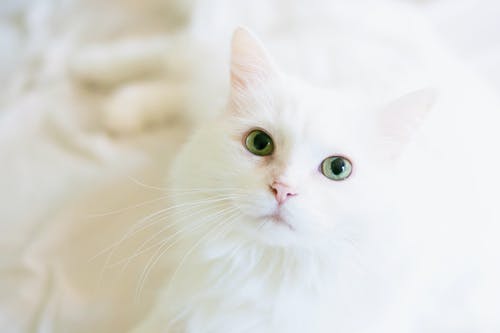Special Needs of Aging Felines: How to Make Everyday Life Easier for Your Beloved Old Cat
As our feline friends grow older, their needs and behaviors change, requiring us to adapt our approach to caring for them. This guide provides valuable information to help cat owners better understand the unique needs of aging felines. Let’s dive into the various aspects of providing the best care for our beloved senior cats, ensuring they stay comfortable, healthy, and happy throughout their golden years.
Understanding Aging Cat Behavior
Much like humans, aging cats experience a range of physical and emotional changes as they grow older. Understanding these changes is essential to provide appropriate care and assistance to your furry companion.
Arthritis and Mobility Issues
Mobility issues can be a significant concern for older cats, as arthritis and degenerative joint diseases may cause discomfort and limit their movement. Some signs of your cat’s arthritis include reluctance to climb or jump, limping, or difficulty standing up. Proper treatment and adjustments around your home can help your cat with mobility issues, but consult a veterinarian for personalized guidance.
Hearing Loss
Like in humans, hearing loss is common among senior cats. If your cat doesn’t come when called or seems less responsive to sounds, it might be experiencing some degree of hearing loss. Consider using visual and tactile cues to communicate with your furry friend to accommodate your cat’s hearing loss.
Senior Cat Nutrition
Proper nutrition is crucial in maintaining your aging cat’s health and well-being. Cats’ nutritional needs change due to metabolic, kidney, or other health issues with age. It is vital to provide your senior cat with a diet low in fat and calories to maintain an appropriate weight and reduce the risk of health problems.
Talk to your veterinarian to determine the best diet for your aging cat. Veterinarians focusing on veterinary geriatrics may offer specialized guidance on senior cat nutrition and other related health concerns.
Proper Hydration for Senior Cats
Keeping your senior cat hydrated is crucial for their overall health. Older cats may not drink enough water, putting them at risk for dehydration and associated health issues. To encourage proper hydration, ensure that clean water is always available and consider providing wet food as part of their diet, which has a higher water content than dry food.
Grooming for Senior Cats
Cats may groom themselves less frequently as they age, leading to matting, skin issues, and unpleasant odors. Assisting your senior cat with regular grooming is essential to maintain their appearance and overall health. Be gentle in your approach, as older cats may have thinner skin and be more sensitive to grooming tools.
For cats with mobility issues, a trip to a puppy veterinary clinic or a similar facility for older pets can offer specialized grooming services, reducing the stress of grooming for both you and your cat.
Dental Problems in Older Cats
Older cats are more prone to dental issues, such as gum disease and tooth decay, leading to pain, infections, and difficulty eating. Regular dental checkups, cleaning, and a well-balanced diet can significantly reduce the risk of dental problems in aging cats. Consult a veterinarian for specific recommendations regarding your cat’s dental care.
Environmental Considerations for Senior Cats
Adapting your cat’s environment to accommodate their changing needs is essential in ensuring their well-being in their golden years. Key considerations include providing easy access to food, water, and litter boxes and creating comfortable and safe resting areas.
For more information about how to cater to your cat’s environment, consider attending a senior veterinarian seminar or consulting with a specialist in veterinary geriatrics for guidance tailored to your cat’s particular situation.
Cold Laser Therapy
Cold laser therapy can offer relief for cats experiencing joint pain and mobility issues. Cold laser therapy is a non-invasive treatment that uses light to stimulate cell regeneration and reduce inflammation, thereby relieving pain and improving the cat’s mobility. For more info on cold laser therapy for aged cats, consult with your veterinarian or a specialist in geriatric feline care.
Emotional Well-being of Aging Cats
Just as important as physical health, the emotional well-being of your senior cat needs attention. As they age, the cat’s personality may change and require extra affection and reassurance from you. Spend quality time with your older cat, engaging them in age-appropriate activities and providing them with a peaceful, loving environment.
The Takeaway
Caring for an elderly cat requires a deeper understanding of their changing physical, emotional, and environmental needs. With proper nutrition, grooming, veterinary care, and support, your cherished older cat can continue to enjoy the best possible quality of life in their golden years. Be attentive, patient, and loving with your senior cat; they have provided you joy and love throughout their lives.








